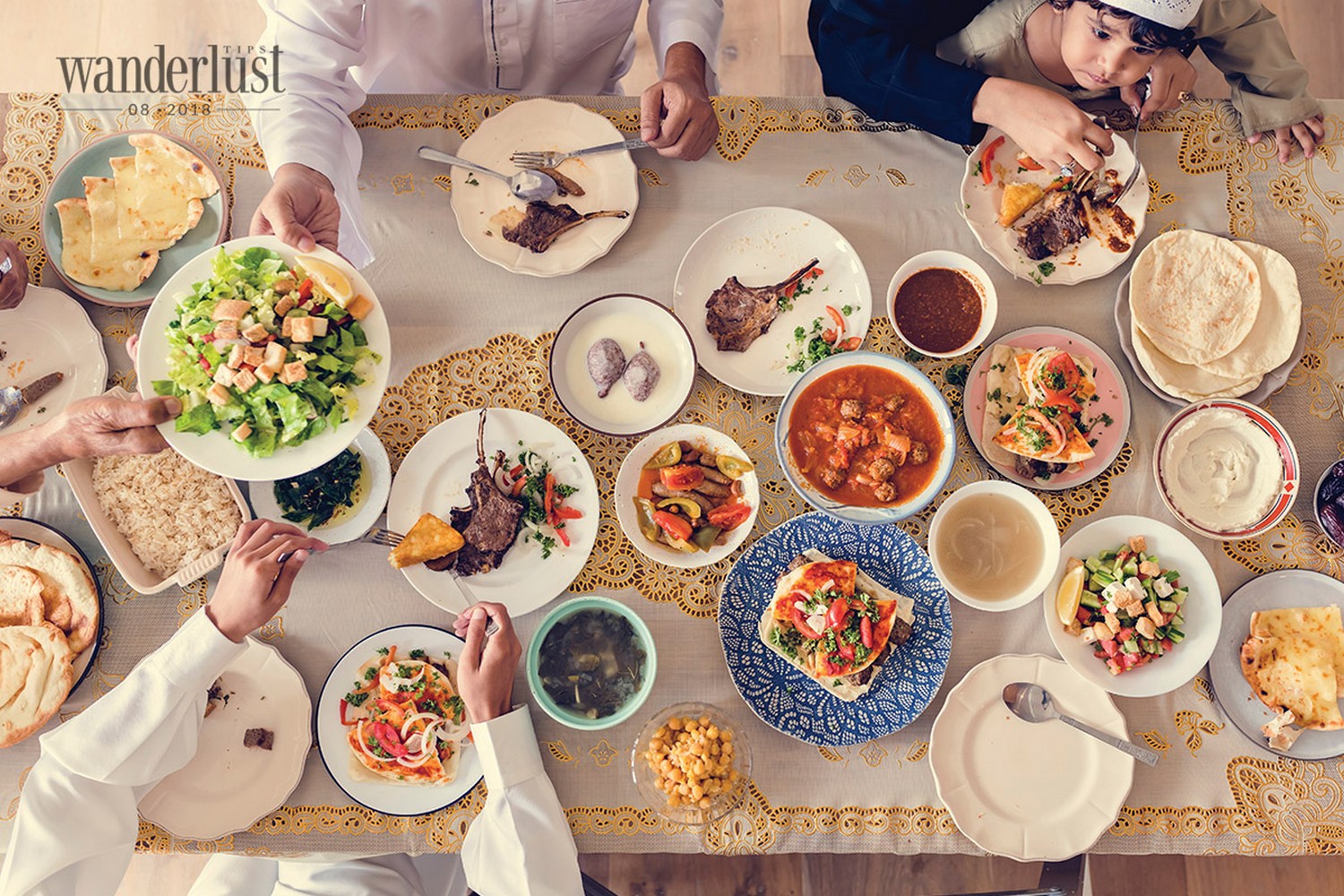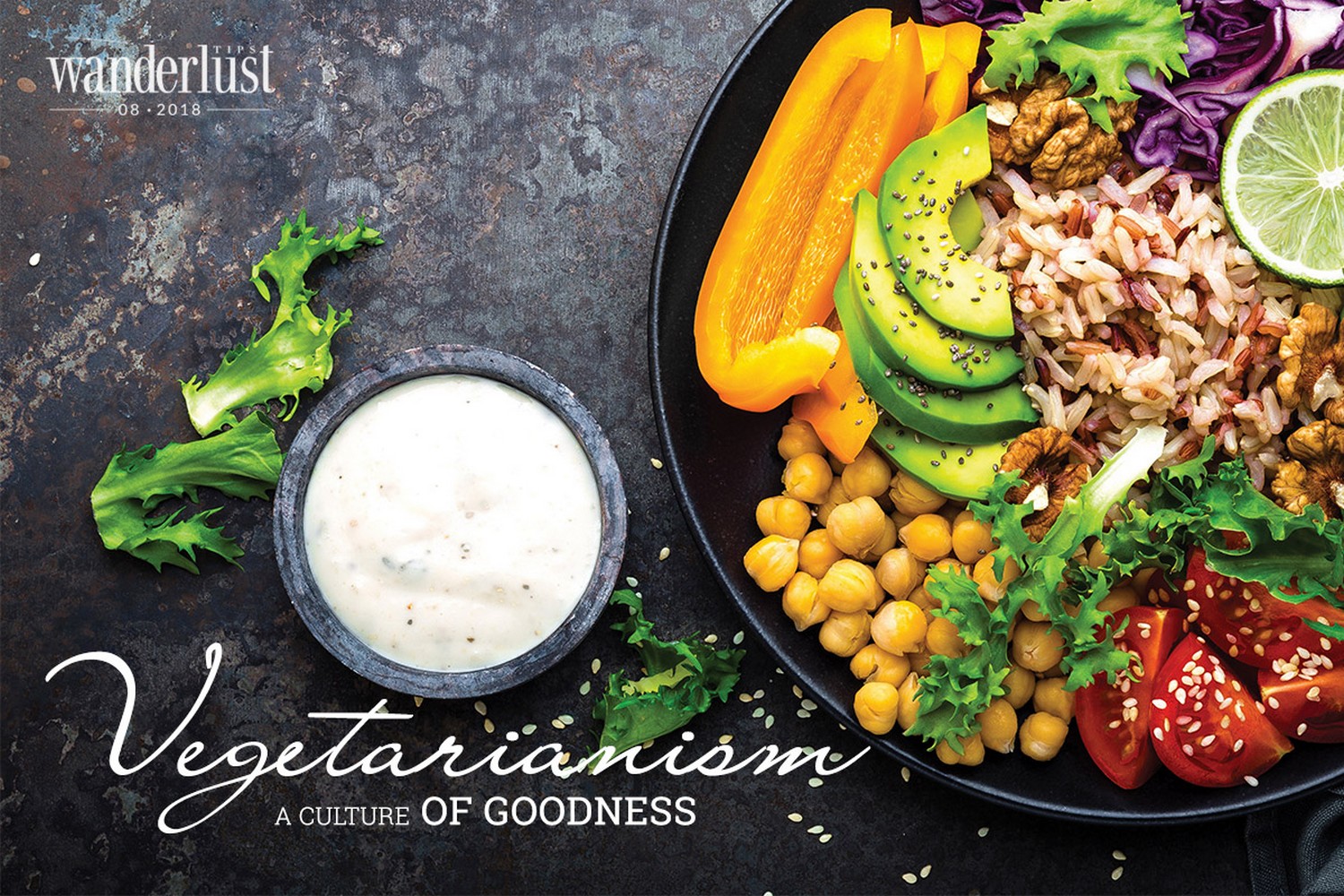Religions not only influence the belief and behaviors of people but also encourage them to spread humanity, tolerance, and kindness. Vegetarianism, which advises people not to kill animals or cause negative effects to the environment or other species, is a typical example of humanity and empathy.
[rpi]
ISLAM
Following the teachings of the Qur’an, Muslims have for themselves very strict and detailed rules on eating to ensure humanity in the consumption of animals, maintain purity, and nurture the soul.
Muslims are not allowed to eat dead animals that are not slaughtered according to shari’ah. The butcher must say “Allah” (the Arabic word for God) before slaughtering each halal animal. The act is performed by sharpening a very sharp knife to reduce the pain and distress of the animals. In addition, the animal must be fed a natural diet that does not contain animal by-products.

The animals and products which are considered forbidden in Islam are pigs, dogs, donkeys, and carnivorous animals like lions, tigers, and bears; reptiles and insects that are considered ugly or filthy (e.g., worms, lice, flies, and cockroaches); amphibians (e.g., frogs, crocodiles, and turtles); scorpions, centipedes, rats, and similar animals.
The animals and products that are considered legal include milk (from cows, goats, and sheep), honey, fish, fresh or naturally frozen vegetables, all legumes & nuts, grains, fresh or dried fruits. Animals such as cows, sheep, goats, deer, chickens, birds, and ducks are all considered legal (Halal) if they are slaughtered according to Islamic rites.
One of the major events of Islam is Ramadan – the ninth month of the Islamic calendar. During this month, Muslims must strictly obey the rule of fasting and no smoking from sunrise to sunset. A day in the month of Ramadan begins with Suhoor, a light meal consumed early at dawn, and then Iftar, the evening meal at sunset. Muslims end the daily Ramadan fast by bathing in water with added fragrance leaves.
JUDAISM
Referring to vegetarianism in Judaism, we consider Kosher a set of Jewish religious dietary laws. Kosher in the Hebrew language means “suitable”, and as opposed to Kosher is Treif – food that does not conform to Jewish law. The Jews believe that the lives of every species are priceless as they all have souls like humans. Therefore, the slaughter of kosher animals for meat must be carried out according to strict regulations to reduce the pain of the animals. Meat is only considered inherently kosher when it is certified and stamped.

According to Kosher Rules, Orthodox Jews are only allowed to eat the meat of land animals that chew the cud and have cloven hooves such as cattle, sheep, goats, deer, and bison. And they only eat the front half of an animal. For example, in a cow, they eat chuck, rib, short plate and do not eat the short loin, flank, sirloin, and round. They do not eat or drink the blood and organs of animals and poultry. Also, Jews are only allowed to use milk and cheese from Kosher animals (cow, goat, and sheep). Fruits from trees under three years old and dishes or juice made from such fruits are forbidden.
In addition, basari (fleshy food) and chalawi (milky food) must be separated. People have to use different spoons, pots, and pans to cook basari and chalawi, and they have to wash them in different sinks.
HINDUISM
Vegetarianism is a practice adopted by Hinduism since its birth. Regarding vegetarianism, Vedas said: “One should be considered dear, even by the animal kingdom […] You must not use your God-given body for killing God’s creatures, whether they are human, animal or whatever”.

In ancient times, devotees of Hinduism in India were not allowed to eat meat. It is said that the nephew of Muhammad told his senior devotees that: “we should not turn our stomachs into graveyards for animals”. But today, Hinduism does not force devotees to be vegetarians; it just encourages people not to eat meat, especially beef, because cows are considered a sacred animal in Hinduism.
Just as Islam has the fasting month of Ramadan, Hindu devotees maintain the custom of not eating meat for one day every two weeks. While Muslims are not allowed to eat or drink anything from dawn to sunset, Hindu devotees can still eat potatoes, sweet potatoes, or other kinds of vegetables on their Vegan days.
BUDDHISM
In the teachings of Mahāyāna Buddhism, vegetarianism is the practice of abstaining from the consumption of meat and five spices including asafoetida, shallot, garlic, mountain leek, and al-lium Chinese, as they tend to stimulate the senses.

In Buddhism, there are two types of vegetarians: strict vegetarians who refrain from consuming animal products all of their lives, and semi-vegetarians who occasionally eat meat. Currently, strict vegetarians are divided into three groups. Lacto-ovo-vegetarians eat both dairy products and eggs; Lacto-vegetarians eat dairy products but avoid eggs. And vegans do not eat dairy products, eggs, or any other products which are derived from animals.
Semi-vegetarians are those who practice vegetarianism on particular days of the month. There are six types of semivegetarian diets: Nhị trai (2 days of vegan diet on 1st and 15th of the Lunar month), Tứ trai (4 days of vegan diet on 1st, 14th, 15th and 30th of the Lunar month), Thập trai (10 days of a vegan diet on 1st, 14th, 15th, 18th, 23rd, 24th, 28th, 29th and 30th of the Lunar month); Nhất ngoại trai (a month of a vegan diet); Tam ngoại trai (three months of vegan diet including January, May, and September of the Lunar month).
Although there are many different forms of vegetarianism, those who pursue vegetarianism all want to have a peaceful soul, good health, and more blessings in life.
Wanderlust Tips

